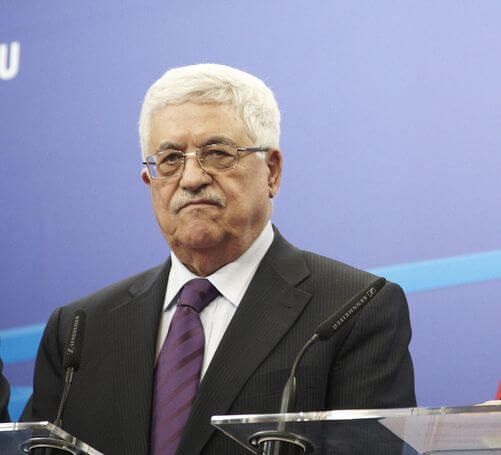Today’s Top Stories
1. Iranian commander makes mysterious visit to Israel-Syria border.
2. Will the Nusra Front — the largest jihadist group in Syria fighting against the Assad regime and Hezbollah — cut ties with Al-Qaida?
The impact of any imminent Al-Nusra split from Al-Qaeda will depend on how the move is carried out and the reaction from local and international actors. Jabhat al-Nusra is trying to change the rules of the conflict in Syria by forcing other rebel groups to increase their strategic cooperation with it. The rebel alternative would be to continue opposing the group, which could lead to their own isolation and increase communal support for Al-Nusra. Al-Nusra is also trying to use the threat of a potential US-Russian air coalition to its advantage.
Join the fight for Israel’s fair coverage in the news
3. For first time during Syria war, Israel opens border for humanitarian aid.
The aid is being transferred into what Kahana calls a “Safe Zone” adjacent to the Israeli border and comprised of the town of Quneitra and its surrounding area.
4. Even One Terror Death is a Tragedy: The New York Times looks at the human toll of mass terror attacks, but it’s worth reminding ourselves that even one death is a tragedy too.
Israel and the Palestinians
• A Palestinian terrorist wanted for carrying out a deadly drive-by shooting was killed in a shootout with IDF forces during an arrest raid near Hebron last night. Muhammad Fakia killed Rabbi Michael Mark and injured his wife and two of their children earlier this month as they were driving in the Hebron Hills.
• On the Temple Mount today, police arrested two members of the Waqf for assaulting a tourist “in an apparently unprovoked attack.” The Waqf, a Jordanian-funded religious trust, is responsible for the day-to-day administration of the Temple Mount. Jerusalem Post coverage.
• Hamas is denying an Israeli media report that one of its officials held a secret meeting with Israelis. Asharq Al Awsat, following up on an Israeli media report explains:
Channel 10 of Israeli television reported a meeting of the head of the regional Council of Ashkelon with the mayor of Beit Hanoun Mohammed al-Kafarneh, who is also a Hamas official.
The report said that the meeting took place about three weeks ago.
Both heads of local councils discussed the environmental issues, in particular, the method of wastewater treatment.

• Palestinian political paralysis has led to a situation where Mahmoud Abbas rules by simply issuing presidential decrees. This must-read story by The Media Line‘s Linda Gradstein really goes to the heart PA’s dysfunctional democracy, warts and all . . .
But beyond the specific law, it raised questions about how new laws are passed in a time when the Palestinian Legislative Council (PLC) has not functioned for ten years. That is mostly because of the split between Abbas’s Fatah party, which controls the West Bank, and the Islamist Hamas, in charge of the densely populated Gaza Strip. In the last Palestinian election in 2006, Hamas won 74 of the 132 seats in the PLC. However, Fatah has not wanted to meet since then, afraid of laws Hamas could push through. In addition, Israel has not allowed the PLC members in Gaza to reach Jerusalem and several PLC members are in Israeli jails.
Since then, Abbas has used a provision in the Palestinian Basic Law, meant to be a prelude to a constitution, which allows him to pass laws by decree. Palestinian legal experts say he has passed more than 150 laws this way, including the social security law . . .
Khalil says that Abbas’s decision is in theory subject to a review by the Constitutional Court or the Supreme Court acting as the Constitutional Court. Both of these courts are packed with Abbas loyalists, he says, who rubber-stamp his decisions. The Basic Law is meant to be a precursor to a constitution, he says, not a long-time solution.
• YNet takes a closer look at the PA’s municipal elections due to be held in October. Hamas will participate in the West Bank balloting,
. . . but the name of the party on the ballots will be the “National Technocrat Party.” The Technocrat Party list will be the exact same as the Hamas party list, but with no mention of the name Hamas.
Towards the end of this year, Hamas will also hold internal leadership elections. It’s widely believed that Khaled Meshaal will not seek the group’s top position, and YNet also looks at the three people vying to replace him.
• After wrapping up a three-year tour of duty as National Public Radio‘s Jerusalem correspondent, Emily Harris looked back on the conflict.
• Australia’s ABC News apologized after its talk show, Q&A, displayed an audience member’s tweet equating Israel and Islamic State.
Correction: An audience tweet was broadcast on Q&A which implied false equivalence between “radicals joining Isis” and Israel. It was a moderator error. Q&A apologies for any offence and removed the tweet from future broadcasts.
Here’s the original tweet, followed by a screengrab of what viewers saw. Backstory at The Australian.

• While France struggles to deal with Arab refugees and Islamic terror, its consul-general to Jerusalem, Herve Magro, told Maan News that the Israeli-Palestinian conflict remains “the central issue in the Mideast.”
“I am not saying that solving the Palestinian-Israeli conflict will solve all problems in the world, but the French initiative will create a dynamism which will affect all issues in the region and serve as a key to solving other issues.”
Around the World
• Iranian journalist snubs Jerusalem Post reporter at — of all place — an international conference on media cooperation.
• According to Anti-Defamation League findings presented to Israeli government officials, there was a “dramatic increase” in anti-Semitic violence in the US.
The organization recorded a total of 941 incidents in the US in 2015, an increase of some 3 percent from the 912 incidents recorded in 2014. Fifty-six of those incidents fell under the most violent category of anti-Semitism, representing a more than 50 percent increase from the 36 assaults reported in 2014.
Moreover, the organization recorded almost double the amount of anti-Semitic acts on US college and university campuses last year, compared with the previous year.
The AMCHA Initiative also documented a spike in anti-Semitism on US campuses.
Commentary/Analysis
• Aaron David Miller weighs on the recent Saudi visit to Israel:
This visit reflects far more change in Saudi views than those in Israel. The Jewish state has long pressed for normalization with the Arab states, particularly those in the Gulf. Such a public visit suggests Saudi willingness to test the waters . . .
Th?is willingness to engage is driven by King Salman–still a relatively new ruler, having ascended to the throne in 2015–and his young son Muhammed Bin Salman. A decade ago sending a Saudi delegation to Israel without some significant quid pro quo or breakthrough in the peace process would have been unimaginable. To do it when Israel has one of the most right-wing governments in its history underscores the depth of change in regional priorities and Saudi thinking.
• Here’s what else I’m reading today . . .
– Norman Bailey: Israel consolidating its regional position
– Elliott Abrams: Suing Lord Balfour
– Dr. Edy Cohen: Abbas following in the mufti’s footsteps
– Jennifer Rubin: Anti-Semitism spikes on US campuses
Featured image: CC BY-NC David Jones with additions by HonestReporting; Abbas CC BY-NC-ND Herman Van Rompuy;
For more, see yesterday’s Israel Daily News Stream and join the IDNS on Facebook.
Before you comment on this article, please remind yourself of our Comments Policy. Any comments deemed to be in breach of the policy will be removed at the editor’s discretion.


